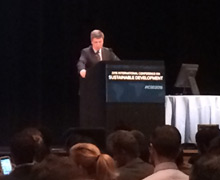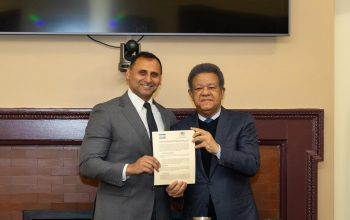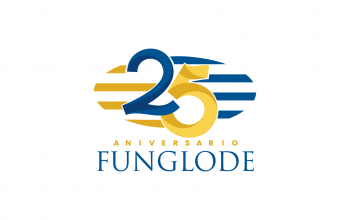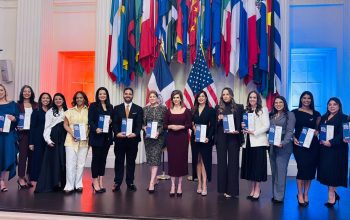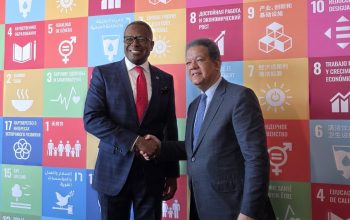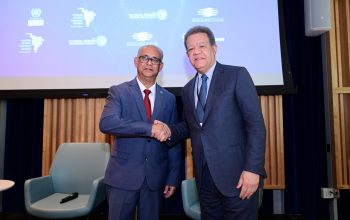news
“The United Nations Sustainable Development Goals Are a Pact to Create a More sustainable world” States H.E Prime Minister Solberg of Norway at International Conference on Sustainable Development
September 23, 2016
GFDD attended the fourth edition of the International Conference on Sustainable Development (ICSD) at Columbia University in New York City on September 21-22, 2016. The theme of this year’s ICSD, hosted by the Sustainable Development Solutions Network (SDSN) and the Earth Institute’s Global Master’s in Development Practice (MDP) program was Moving Forward: The SDGs in Practice.
ICSD’s purpose is to identify and share
practical, evidence-based solutions that can support the Sustainable Development Goals (SDGs).
The first day of the conference included a high-level dialogue between diverse stakeholders while the second day featured over 25 parallel sessions and a poster session for approximately 300 total presentations.
Representing the foundation throughout the conference, Marc Jourdan, GFDD’s UN Programs & Outreach Manager, attended the dialogues
and parallel sessions which focused on a wide range of topics from the role of innovation in technology for socially inclusive economic growth to the science policy implementation interface for low carbon-urban development, with presentations from post-graduate scholars and policy experts from the United Nations and across the globe.
Over 1,000 attendees, crowded into the main auditorium on the first day to hear interventions from a variety of High-level speakers including Norwegian Prime Minister Erna Solberg, Jamaican Prime Minister Andrew Holness, Columbia University Professor and Economist Jeffrey Sachs,
UN Under-Secretary-General and UNOPS Executive Director Grete Faremo, Islamic Development Bank Chief Economist Savaş Alpay, former UNEP Executive Director Achim Steiner, and writer and journalist Femi Oke in her capacity as moderator of the plenary sessions.
Prime Minister Holness of Jamaica reminded participants that “Debt is the single biggest obstacle to development” noting that “high debt burden can undermine ability to meet the
SDGs.”
The highly reputed academic Professor Sachs impressed upon national governments to “shift resources away from things we are doing, towards things we need to upgrade” if we wish to successfully meet our objectives under the 2030 Agenda for Sustainable Development.
Achim Steiner called upon today’s generation to live up to the expectations of the new agenda explaining that “Living in 2016 and trying
to manage development toward 2030 is an enormous challenge, but one we should embrace with open arms.”
Discussing the role of the private sector in the new development agenda, Savas Alpayd commented that “SMEs have to be supported in a more fundamental manner so that the SDGs can be implemented in a timelier manner”.
Finally, Prime Minister Solberg of Norway delivered the last keynote address emphasizing that the SDGs would
be defining moment in history for this generation. She stressed to the audience that “The SDGs are not only a mean of fixing what is broken in our world. It’s also a pact to create a more sustainable world. If we start to work together on each of them then we have a chance to achieve them. This will be the defining feat of your generation if you manage to achieve them.”
About ICSD
The aim of ICSD is to identify
and share practical, evidence-based solutions that can support the Sustainable Development Goals (SDGs). This year’s conference theme was Moving Forward: The SDGs in Practice. The ICSD provides a unique opportunity to bring together stakeholders from government, academia, the United Nations, international agencies, NGOs, and grassroots organizers to share practical solutions towards the achievement of more sustainable and inclusive societies.
About the
UN Sustainable Development Solutions Network
UN Secretary-General Ban Ki-moon launched the UN Sustainable Development Solutions Network (SDSN) to mobilize global scientific and technological expertise and to promote practical problem solving for sustainable development, including the design and implementation of the Sustainable Development Goals (SDGs). Following their adoption, the SDSN is now committed to supporting the implementation of the SDGs at local, national,
and global scales. The SDSN aims to accelerate joint learning and help to overcome the compartmentalization of technical and policy work by promoting integrated approaches to the interconnected economic, social, and environmental challenges confronting the world. The SDSN works closely with United Nations agencies, multilateral financing institutions, the private sector, and civil society. The organization and governance of the SDSN aims to enable a large number of leaders from all regions
and diverse backgrounds to participate in the development of the network, while at the same time ensuring effective structures for decision-making and accountability.
About the MDP Program at Columbia University’s Earth Institute
The Global Master’s in Development Practice (MDP), an interdisciplinary graduate degree program, prepares students to better identify and address the challenges of sustainable development. MDP
programs generally consist of two years of coursework in four intersecting disciplines—health, natural, social, and management sciences–combined with cross-sectoral field training. MDP programs belong to a global network of universities and collaborating organizations and have been developed according to recommendations outlined in the report of the International Commission on Education for Sustainable Development Practice.

